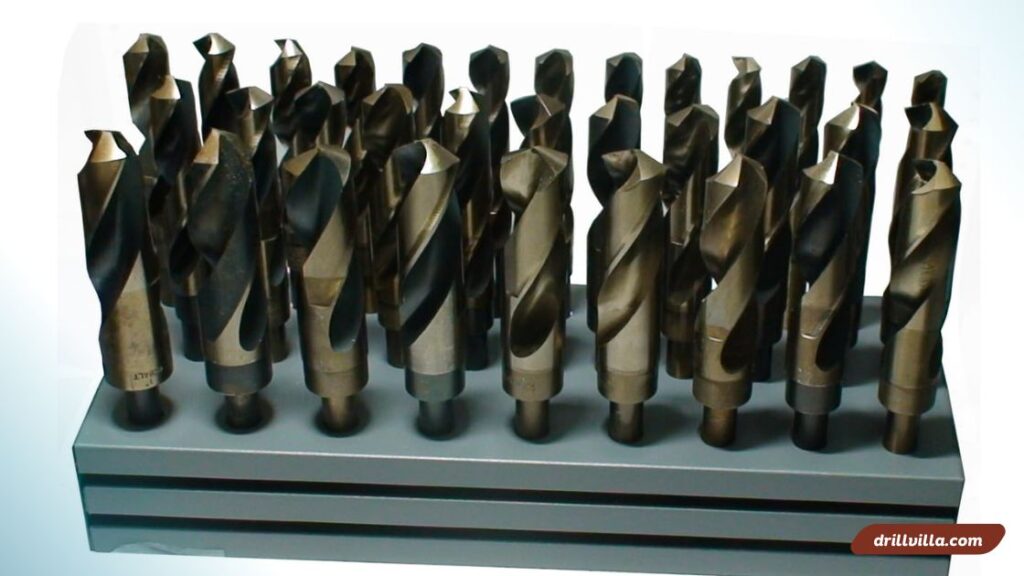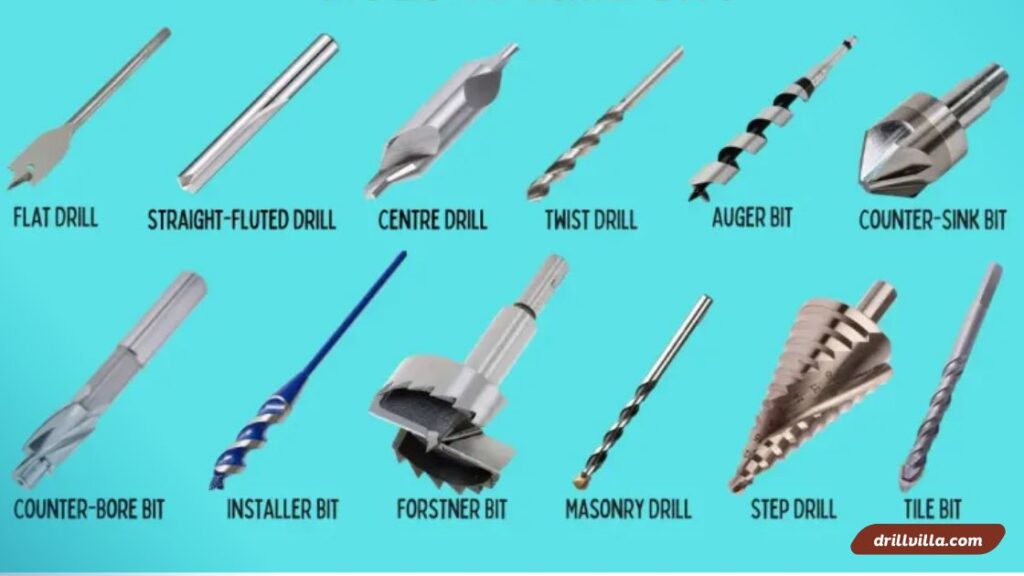I still remember the first time I tried to hang a heavy mirror in my bathroom. I had my new cordless drill, a pack of bits from the dollar bin (big mistake), and a solid plan—or so I thought. About 10 seconds into drilling through the tile, snap! My bit broke like a dry twig. I thought I was doing something wrong. Turns out, I was just using the wrong type of bit.
Over the years, I’ve snapped more bits than I care to admit. But eventually, I figured out which types of drill bits don’t snap—and now I want to save you the headache. If you’re here asking, what type of drill bits won’t snap?, I’ve got your back.
Let’s dive in.
Article Summary
- Why Drill Bits Snap in the First Place
- So, What Type of Drill Bits Won’t Snap?
- My Favorite Drill Bit Brands (That Actually Last)
- What Else Can You Do to Avoid Snapping Drill Bits?
- Bit Set Essentials: What Should Be in Your Toolbox?
- Real Talk: My Personal Lessons from Broken Bits
- Recommended Bit Sets on a Budget
- What is the strongest drill bit type?
- How to stop snapping drill bits?
- FAQs About What Type of Drill Bits Won’t Snap
- Final Thoughts: What Type of Drill Bits Won’t Snap?
Why Drill Bits Snap in the First Place
Before we get into the good stuff (the drill bits that actually hold up), let’s talk about why they break in the first place. Here’s what I’ve learned from a few frustrating weekends:
Common Reasons Drill Bits Snap:
- Cheap materials – Low-carbon steel bits can bend and break with little pressure.
- Wrong bit for the job – Using a wood bit on metal? That’s a no-go.
- Too much pressure – Leaning too hard on the drill is a fast track to snapping.
- No lubrication – Drilling into metal without oil heats things up and weakens the bit.
- High speeds on hard surfaces – Going full throttle may work for drywall but not for steel.
So, What Type of Drill Bits Won’t Snap?
This is the million-dollar question, right? Here’s the answer I wish I had when I was wrecking walls and wasting time..
Cobalt Drill Bits – My Top Choice for Tough Jobs
If you’re drilling into stainless steel, cast iron, or any hard metal, cobalt bits are your new best friend.
Why I trust them:
- Made from high-speed steel (HSS) with cobalt alloy (usually 5–8% cobalt)
- Heat-resistant and durable under pressure
- Last much longer than standard bits
- Less likely to snap even when drilling tough metals
When to use:
Perfect for metalworkers, mechanics, and DIYers like me who tinker with auto repairs or build shelves from steel pipes.

Titanium-Coated Drill Bits – Strong and Smooth
I love these for general-purpose use. They’re not as strong as cobalt, but they still resist snapping.
Why they work:
- Coated with titanium nitride, which reduces friction and heat
- Hold their edge longer than regular HSS bits
- Ideal for softer metals, plastic, and wood
Heads up:
Once the coating wears off, they’re basically regular HSS. So don’t try sharpening them—it ruins the coating.
Carbide-Tipped Drill Bits – Built Like a Tank
These are the beasts of the bit world. I don’t use them every day, but when I do, it’s because I’m going through brick or tile.
Why they don’t snap:
- Ultra-hard tungsten carbide tips
- Cut through masonry and ceramic with ease
- Don’t flex, so they won’t twist and break under torque
Best for:
Concrete walls, tiles, stone countertops—basically anything your average bit cries about.
Black Oxide Drill Bits – Budget-Friendly and Tough Enough
These bits fall somewhere between cheap and premium. They’re coated in black oxide, which makes them stronger than plain HSS.
What I use them for:
- Woodworking
- Plastic drilling
- Light metal tasks
Bonus:
They’re corrosion-resistant, so they don’t rust as quickly as regular bits lying around in your garage.
Quick Comparison Table: Drill Bits That Won’t Snap
| Type | Best Use | Snap Resistance | Price Range | My Experience |
|---|---|---|---|---|
| Cobalt | Hard metals (steel, cast iron) | ★★★★★ | $$$ | Best for metal |
| Titanium-Coated | Wood, soft metals, plastics | ★★★★☆ | $$ | Great all-rounder |
| Carbide-Tipped | Masonry, tile, stone | ★★★★★ | $$$$ | Ideal for tile |
| Black Oxide | Wood, plastic, light metal | ★★★☆☆ | $ | Good for budget jobs |
My Favorite Drill Bit Brands (That Actually Last)
I’ve tested a bunch of brands over the years. Some were impressive. Others—not so much. Here are the ones I keep going back to:
1. DEWALT Cobalt Series
These bits have chewed through rusty bolts and metal studs for me. No snapping. Just clean, smooth cuts.
2. Milwaukee Red Helix Titanium
They feel solid, and they look cool too. But more importantly, they’ve held up through multiple home remodels.
3. Bosch Carbide-Tipped Masonry Bits
I used these when I was installing anchors in brick for a backyard canopy. Zero issues—even after drilling 20 holes.
What Else Can You Do to Avoid Snapping Drill Bits?
Even the best bits can snap if you don’t treat them right. Here’s what I’ve learned (sometimes the hard way):
Use the Right Drill Speed
- High speed for softer materials like wood
- Low speed for hard metals or tile
Apply Light Pressure
Let the bit do the work. Don’t push like you’re trying to open a stuck jar.
Use Lubrication (on Metal)
A drop of cutting oil can mean the difference between a clean hole and a snapped bit.
Start with a Pilot Hole
Use a smaller bit first. It helps guide the larger bit and reduces stress.
Keep Your Bits Cool
Overheating = brittleness = snap city.
Bit Set Essentials: What Should Be in Your Toolbox?
If you’re building your own kit, here’s what I always keep handy:
- Cobalt bit set (for metal)
- Titanium-coated set (for wood and everyday jobs)
- Masonry bits (for tile, concrete, brick)
- Spade bits (for larger wood holes)
- Lubricating oil
- Sharpie to mark holes
- Drill stop collars to avoid going too deep
Real Talk: My Personal Lessons from Broken Bits
- Lesson #1: Don’t buy the cheapest bits. You’ll spend more replacing them.
- Lesson #2: If the drill starts smoking, stop. That bit’s about to go.
- Lesson #3: A good bit makes even a cheap drill feel powerful.
- Lesson #4: Matching the bit to the material is 90% of the job.
- Lesson #5: Take your time. Rushing leads to broken bits and broken projects.
Recommended Bit Sets on a Budget
| Product | Type | Ideal For | Price | Where to Buy |
|---|---|---|---|---|
| DEWALT DWA1240 Cobalt Set | Cobalt | Metal | $$ | Amazon |
| Milwaukee Red Helix | Titanium-Coated | Wood, Plastic | $$ | Home Depot |
| Bosch 7-Piece Masonry Set | Carbide-Tipped | Concrete, Tile | $ | Lowe’s |
| Irwin Black Oxide Bit Set | Black Oxide | General Use | $ | Walmart |
What is the strongest drill bit type?
I’ve snapped my fair share of drill bits. It’s frustrating, especially when I’m right in the middle of a project. Over time, I learned that not all drill bits are created equal. Some are built to last. Others? Not so much.
If you’re wondering what type of drill bits won’t snap, here’s the answer I wish I had earlier: cobalt and carbide-tipped bits are the strongest I’ve used.
Let me break them down:
Top Drill Bit Types That Won’t Snap Easily
| Drill Bit Type | Why It’s Strong | Best Use Case |
|---|---|---|
| Cobalt | Heat-resistant, tough | Drilling stainless steel, hardened metal |
| Carbide-Tipped | Super hard, brittle though | High-speed or heavy-duty drilling |
| Titanium-Coated | Durable surface, less friction | Wood, plastic, light metal |
| Black Oxide | Tougher than standard HSS | Everyday DIY use, wood and soft metals |
Out of all of these, cobalt drill bits are my go-to when I need power and durability. They’ve saved me so many headaches. I’ve drilled through metal sheets and hard wood without a single snap.
🧠 Quick Tip:
Strong doesn’t always mean better for every job. Carbide bits are super hard, but they can chip if dropped. So, pick based on what you’re drilling into.

How to stop snapping drill bits?
This part hits home for me. I used to snap drill bits like they were twigs. But once I figured out why it was happening, things got way easier.
Here’s what I learned about how to stop snapping drill bits, and trust me—it’s all stuff I wish I knew earlier:
My Best Tips for Drill Bit Survival
- Go Slow, Not Hard
I used to push the drill hard and fast. Big mistake. Slower speed with steady pressure works way better, especially in metal. - Use the Right Bit for the Job
If I’m drilling into metal, I pick cobalt. For wood, I go with brad point or black oxide. Using the wrong bit is like using a butter knife to cut steak. - Keep the Bit Cool
Overheating weakens bits. I now keep a spray bottle nearby or dip the bit in cutting oil. A cool bit lasts longer. - Secure Your Workpiece
Wobble equals snap. I clamp down whatever I’m drilling. That way, the bit stays straight, and I stay stress-free. - Pilot Holes Save Bits
I start with a small bit to make a guide hole. It puts less stress on the bigger bit and helps me drill more precisely. - Sharpen or Replace Dull Bits
A dull bit needs more force. More force = more chance of snapping. I sharpen my bits or just buy replacements when needed.
Real Talk:
Ever snapped a bit in the middle of a Sunday project? I have. It ruins the vibe fast. Now that I use drill bits that won’t snap easily, and follow these steps, I haven’t had a broken one in months.
By using strong bits like cobalt or carbide and drilling smarter—not harder—I finally broke the cycle of broken bits. If you’re tired of replacing them every other project, try these changes. They worked for me, and I bet they’ll work for you too.
FAQs About What Type of Drill Bits Won’t Snap
Can you sharpen cobalt drill bits?
Yes! Unlike titanium-coated ones, cobalt bits can be sharpened again and again.
Are titanium bits stronger than cobalt?
Not really. Titanium bits are coated, not solid. Cobalt bits are stronger overall.
What bit should I use for drilling stainless steel?
Go with cobalt. Always.
How do I know if my drill bit is dull?
If it squeals, smokes, or takes forever to cut—yeah, it’s dull.
What causes drill bits to heat up?
High speeds, no lubrication, and continuous drilling without breaks.
Final Thoughts: What Type of Drill Bits Won’t Snap?
If you’re still with me, here’s the big takeaway:
It’s not just about buying expensive bits. It’s about buying the right bits.
Cobalt for metal. Carbide for tile. Titanium for daily stuff. And don’t forget—how you use them matters just as much.
I’ve broken plenty of bits along the way, but now? I rarely snap a single one. Hopefully, this guide gets you there faster than I did.
So go ahead—grab the right bit and drill with confidence.